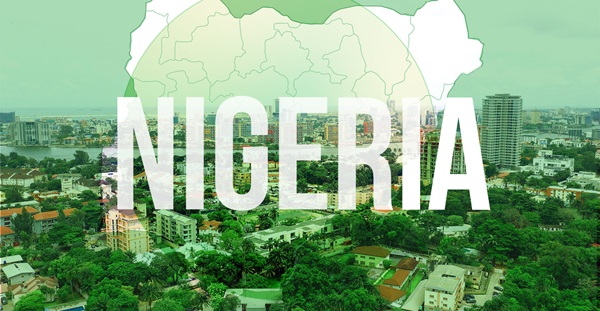
On Democracy Day, we, the heads of mission of the United States, United Kingdom, Finland, Norway and Canada, recognise and commend the Nigerian people for their steadfast commitment to 26 years of democratic governance. Democracy flourishes through many essential pillars and, as President Tinubu aptly stated during the 25th anniversary of democracy in 2024, “there must be diverse perspectives and viewpoints.” Free expression has long been one of Nigeria’s core democratic values. Enshrined in the Nigerian Constitution, the right to freedom of expression aims to protect citizens’ ability to engage in meaningful debate without government interference. This principle, of trusting citizens to engage in open discourse, remains vital today.
In April, the National Human Rights Commission (NHRC) raised important concerns regarding the 2015 Cybercrimes Act and its 2024 amendments, particularly their impact on free expression. While the Act was introduced with commendable goals, to combat online fraud and cyberattacks, there is mounting evidence that it is being misused to stifle dissent and punish critics. The NHRC’s advisory on freedom of expression warned that the law “has potentials for abuse, particularly with respect to arrests and prosecutions of activists, journalists, bloggers and ordinary social media users.” In 2022, the ECOWAS Court of Justice ruled that the Act fails to align with Nigeria’s obligations under the African Charter on Human and Peoples’ Rights and the International Covenant on Civil and Political Rights.
When misapplied, the Cybercrimes Act undermines democratic progress and discourages civic participation. It also risks damaging investor confidence and curtailing the innovation essential to economic growth.
Take the example of Dele Farotimi, who faced 12 charges under the Cybercrimes Act after he publicly alleged corruption in the judiciary. Farotimi was reportedly detained in Lagos, transported to Ekiti, and brought to court in handcuffs. Though the charges were later dropped, his ordeal highlights a disturbing trend: a law designed to counter cybercrime can be twisted into a tool for suppressing free expression. Farotimi is not alone. Journalists, civil society activists, and citizens have all been similarly targeted for expressing opinions or exposing wrongdoing. When laws are used to silence voices, democracy suffers.
Cybercrime is a real issue. According to the Nigeria Communications Commission (NCC), the country loses an estimated $500 million annually to cybercriminal activity. This threat deserves a firm response. However, the Act’s vaguely defined terms, such as “false information,” “cyberstalking,” “harassment,” and “insult,” leave too much room for interpretation and misuse. Section 24, the provision most frequently used, is of particular concern. The NHRC has urged law enforcement to “exercise caution” when interpreting this section to avoid prosecuting individuals who pose no threat to public safety. We commend the Minister of Information and National Orientation, Mohammed Idris, for his willingness to collaborate with the National Assembly and stakeholders in reviewing the Act to ensure it upholds constitutional values.
The implications extend beyond civil liberties. Nigeria’s economic trajectory hinges on attracting investment and supporting a thriving digital ecosystem. Even isolated incidents of misuse under the Cybercrimes Act can have a chilling effect, deterring digital entrepreneurs, investors and innovators. The law’s vague language contributes to regulatory uncertainty, making it difficult for companies to assess legal risks. This discourages investment in sectors reliant on digital content, e-commerce, and media.
We, the undersigned Heads of Mission, call on Nigerian lawmakers to amend the Cybercrimes Act by clearly defining key terms, such as “false information,” “insult,” “hatred,” “cyberstalking” and “harassment,” to prevent misuse against critics and ensure the law serves its intended purpose. As partners and friends of Nigeria, we share its commitment to democratic values and wish to see it realise its full potential as a leader in digital innovation. Reforming the Act to protect both civil liberties and national security will help achieve this vision.
Striking the right balance between protecting citizens and preserving human rights is not easy, but it is essential. A democratic and open Nigeria, confident in its laws and institutions, will be better positioned to attract investment, foster creativity and grow its economy.
Nigeria is not alone in grappling with how best to regulate the digital space. Democracies worldwide face similar challenges in adapting legal frameworks to the realities of the online era. Through the Council of Europe’s Global Action on Cybercrime project, Nigerian lawmakers are receiving technical assistance and funding to ensure the Act’s review meets international standards and best practices. However, delays in the review process persist. We urge lawmakers to prioritise this reform and ensure it is transparent and open to public participation.
Free expression is a cornerstone of any democracy. It demands constant vigilance and collective responsibility. It is a fundamental right guaranteed by the Nigerian Constitution and should be respected, even when the views expressed are unpopular or uncomfortable.
The review of the Cybercrimes Act is an opportunity for Nigeria to reaffirm its democratic values and foster a legal environment that promotes accountability, innovation and growth. We are confident that with commitment and collaboration, Nigeria can meet this challenge and set a powerful example for the region and the world.
By: Richard M. Mills, Jr., Richard Montgomery, Sanna Selin, Svein Baera & Pasquale Salvaggio
Mills, Jr. Is of the U.S. Embassy, Montgomery is of the British High Commission, Selin is of the Embassy of Finland, Baera is of the Embassy of Norway and Salvaggio is of the Canadian High Commission.


